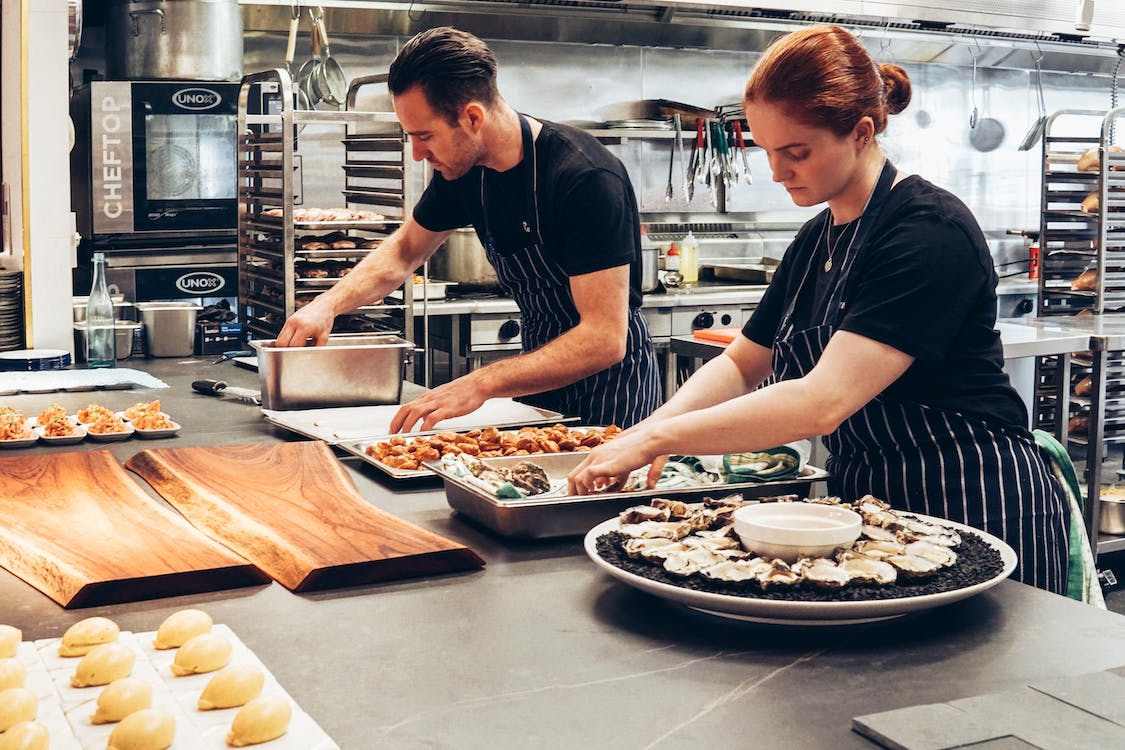Entering the world of dining and events is an exciting endeavor that requires a unique blend of culinary expertise, organizational skills and customer focus. Whether you want to create memorable dining experiences or organize seamless events, starting a catering and events business can be a fulfilling and profitable endeavor. In this comprehensive guide, we explore the most important tips and strategies to help entrepreneurs lay the foundation for a thriving and successful business.
1) Define your niche and specialty:
In the competition of the catering industry, defining the market niche and specialty is of paramount importance in terms of success. This requires honing a certain area or style that sets your catering service apart from the rest. Whether it’s gourmet food, a dietary focus such as vegan or gluten-free options, or specializing in catering for certain events such as weddings, sprinkle baby shower or business meetings, a well-defined niche creates a unique identity.
Not only does it help you target a specific market, but it also allows you to showcase your expertise and passion, making your catering business more attractive to customers looking for a unique and customized experience. By identifying and developing a niche market, you position your catering company as an option for customers looking for specialized services that meet their preferences and event requirements.
2) Create a detailed business plan:
Creating a detailed business plan is an important step in starting a catering business. This comprehensive document serves as a road map outlining your business goals, target markets, competitive analysis, financial projections and operational strategies. It provides a structured basis for decision-making and guides your company towards success.
Your business plan should articulate your catering company’s unique value proposition and detail how you will stand out in a competitive market. In addition, it helps you anticipate challenges and devise strategies to overcome them. Whether you’re looking for financial support from investors or planning the development of your business, a well-written business plan is an essential tool. It ensures that you have a clear vision for your catering business, improving your ability to meet the challenges and capitalize on the opportunities of the dynamic culinary and events industry.
3) Building a strong brand identity:
Creating a strong brand identity is essential for success in the catering industry. Start by designing a memorable and cohesive logo that reflects the essence of your brand. Consistency is key in all visual elements, including marketing materials, websites and social media platforms. Develop a unique color scheme, typography and imagery that resonates with your target audience.
Highlight the values and attributes that set your catering business apart, whether it’s a commitment to quality food, exceptional service, or a specific culinary niche. Use professional photography to showcase your culinary creations and events, creating a visually appealing and appealing brand image. By investing in a strong and consistent brand identity, you not only increase brand awareness, but also build trust among potential customers and position your catering business as a reputable and distinctive choice in a competitive culinary environment.
via Pexel
4) Highlight high-quality culinary offers:
Put the quality of your culinary offerings first. Invest in professional chefs, source fresh and first-class ingredients and create a varied and attractive menu. Exceptional food is often the highlight of any event, and a reputation for quality cuisine contributes significantly to the success of your business.
5) Effective marketing and networking:
Develop a solid marketing strategy to promote your catering and events business. Take advantage of social media platforms, create interesting content and present your work with professional photography. Additionally, actively network with event planners, venue managers and other industry professionals to expand your reach and get referrals.
6) Invest in professional equipment:
Make sure you have the professional equipment you need to host events of all sizes. From high-powered ovens to high-quality cookware, investing in reliable equipment is essential to providing a seamless and efficient service. Well-maintained equipment also contributes to the safety and success of your operations.
7) Develop a seamless booking process:
Streamline the booking process to make it easy for customers to inquire, request offers and secure your services. Take advantage of online booking platforms, maintain a responsive website and provide clear information about your offers and prices. The user-friendly booking process improves the overall customer experience.
8) Prioritize exceptional customer service:
Make exceptional customer service the cornerstone of your business. Communicate clearly with customers, respond quickly to inquiries and exceed expectations. Especially when its special events like weddings, special family events. Positive customer experiences lead to repeat business and valuable word-of-mouth referrals, contributing to the long-term success of your catering and events business.
9) Customization and flexibility of the offer:
Offer customers customized options to tailor your service to their specific needs. Offering flexibility demonstrates a customer-centric approach that can set you apart from the competition, whether it’s accommodating dietary restrictions, customizing your menu, or customizing individual event themes.
10) Stay up to date with industry trends:
Stay up-to-date on the latest trends in both the catering and events industry. From emerging culinary trends to innovative event planning concepts, being aware of industry developments allows you to stay up-to-date and offer customers fresh and contemporary experiences.

via Pexel
11) Build strong supplier relationships:
Build strong relationships with trusted vendors, including ingredient suppliers, event rentals, and floral arrangements. Creating a network of reliable partners ensures that you can consistently offer quality services and receive the necessary support to make each event a success.
12) Invest in employee training:
Make sure your staff is well trained in both culinary skills and event management. The staff must know customer service, time management and problem solving. Investing in continuous training promotes the formation of a united and professional team, which is necessary to provide top-class services.
13) Create packages for convenience:
Creating comfort packages is a strategic step in starting a catering business. These curated packages simplify the decision-making process for clients by offering end-to-end solutions that cover catering, event planning and interior design services.
A clear outline of each package provides transparency and helps customers make informed choices according to their event needs and budget. Packages streamline the booking process, making it convenient for customers to access various services, ultimately improving their overall experience. By offering convenience with carefully prepared packages, your catering company can serve a wider customer base and stand out in a competitive market.
14) Manage your finances wisely:
Careful financial management is vital when starting a catering business. Create a detailed budget and closely track income and expenses to ensure fiscal accountability. Carefully monitor cash flow to maintain liquidity and meet operational needs. Carefully consider investments in equipment, personnel, and marketing and align spending with long-term business goals. Implementing sound financial practices from the start builds a solid foundation for stability and growth.
Regularly review financial performance and adjust strategies as needed to optimize profitability. By managing finances wisely, your catering company can cope with challenges effectively and take advantage of opportunities for sustainable success.
15) Ask for feedback and continuous improvement:
Actively ask for feedback from customers after each event. Use this feedback as a tool for continuous improvement, identifying areas where you can improve services or address issues. The contribution of customers is invaluable when refining your offer and guaranteeing customer satisfaction in the long term.
In summary, starting and running a successful catering and event business requires a combination of culinary artistry, business acumen and commitment to customer satisfaction. By defining a niche, investing in quality, prioritizing exceptional service, and keeping up with industry trends, you can create a business that not only meets, but exceeds your customers’ expectations. With careful planning, dedication and passion for creating memorable experiences, your catering and events business can thrive in the dynamic and rewarding landscape of the hospitality industry.


